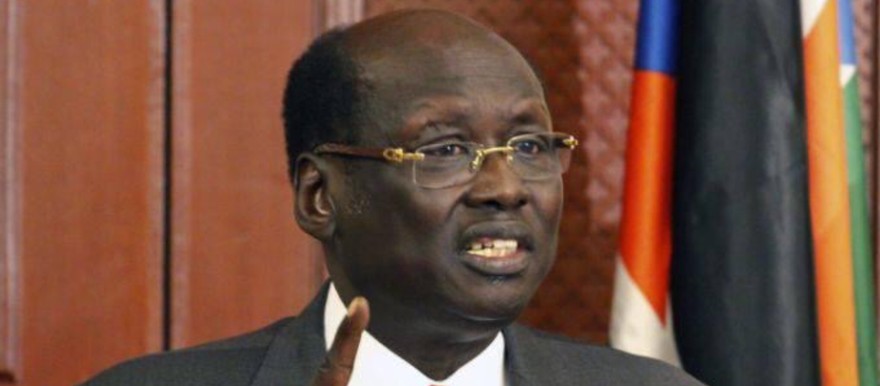South Sudan’s government has said it is ready to start serious peace talks with holdout opposition groups to achieve lasting peace in the country.
South Sudan Opposition Movements Alliance (SSOMA), a coalition of opposition groups that did not join the 2018 peace deal, signed a truce agreement with the government of President Salva Kiir in Rome, Italy on 12 January.
This came following a meeting hosted and mediated by the Rome-based Sant’ Egidio Community.
Speaking to Radio Tamazuj on Tuesday, presidential adviser and special envoy Dr. Barnaba Marial Benjamin said the government is willing to engage in dialogue with the coalition of holdout opposition groups with an open mind.
Marial, who heads the government delegation at peace negotiations with the holdout opposition factions in Rome, said his team will continue to work patiently to achieve peace and stability.
“We will not reopen the revitalised peace agreement for negotiations, but the team will listen to the holdout opposition groups to know their demands and concerns,” he said.
Benjamin, a close ally of President Salva Kiir and veteran of the ruling Sudan People’s Liberation Movement (SPLM), said they plan to form an inclusive government to bring an end to conflicts in the war-torn country.
“When we asked the holdout opposition groups about the reason for their refusal to sign the revitalised peace agreement, their response was that the agreement did not address the root causes of the conflict. So we will go back to Rome for further talks so that we hear more from them,” he said.
According to Benjamin, the government is ready for comprehensive talks with the opposition. “Our doors are open and our brothers who did not sign the agreement are free to say anything so that we discuss. The holdout opposition groups are saying that the root causes of the conflict haven’t been addressed, while the government admits that the holdout opposition groups had refused to join the agreement because they were unhappy with it,” he said.
“When we start our meetings they will tell us the root causes of the conflict in details, so we cannot tell them that there are no root causes at this stage. Our discussions are open but we will not reopen the revitalised peace agreement for negotiations,” he added.
The senior government official argued that the revitalised peace deal has addressed most of the issues of the conflict in South Sudan. “Issues like federalism and security sector reforms are stipulated in the current peace agreement but we will not block new demands because we are ready for talks,” he said.
Benjamin, who formerly served as foreign minister, said they want the holdout opposition groups to join the government to help build the country. “If we reach an agreement in Rome, the opposition groups will be part of the implementation of the current peace agreement. There will be positions and opportunities under the agreement that will be reached, so they will be represented in the government,” he said.
The presidential envoy said he was much more optimistic about reaching peace with the holdout opposition groups in Rome, pointing out that the success of peace negotiations depend on compromises from both sides.
"I am optimistic about reaching a peace agreement because our people are suffering from the conflict. Political leaders have a responsibility to ensure that citizens live in peace and harmony," he stressed.
“I will go back to Rome with my team so that we begin our dialogue on 27 January,” Benjamin concluded.
The latest push for peace with the holdout opposition factions comes as President Salva Kiir and opposition leader Riek Machar struggle to implement the revitalised peace agreement that has largely stopped fighting in the country.
However, crucial steps such as establishing a unified army and determining the number of states have yet to take place. The rival parties are expected to form a unity government on February 22 – a deadline agreed in November 2019 after days of talks.




